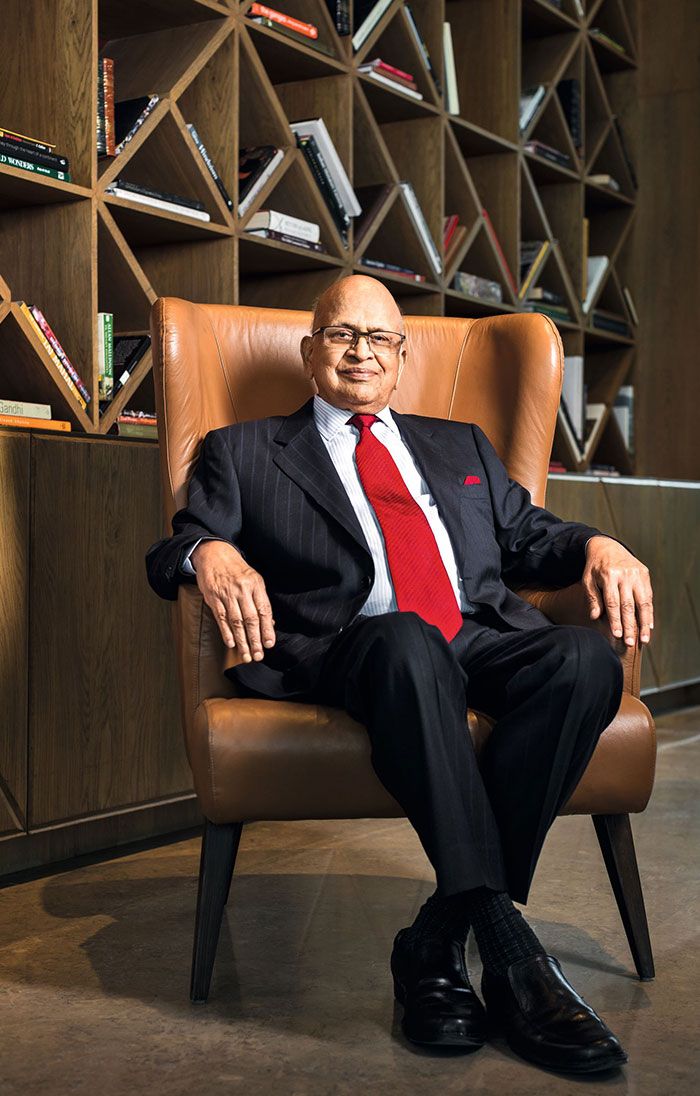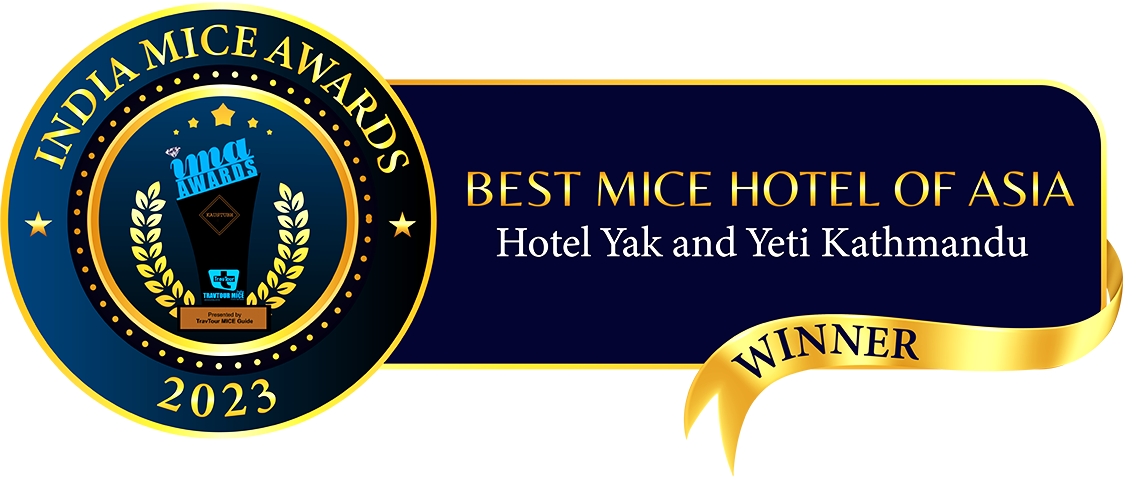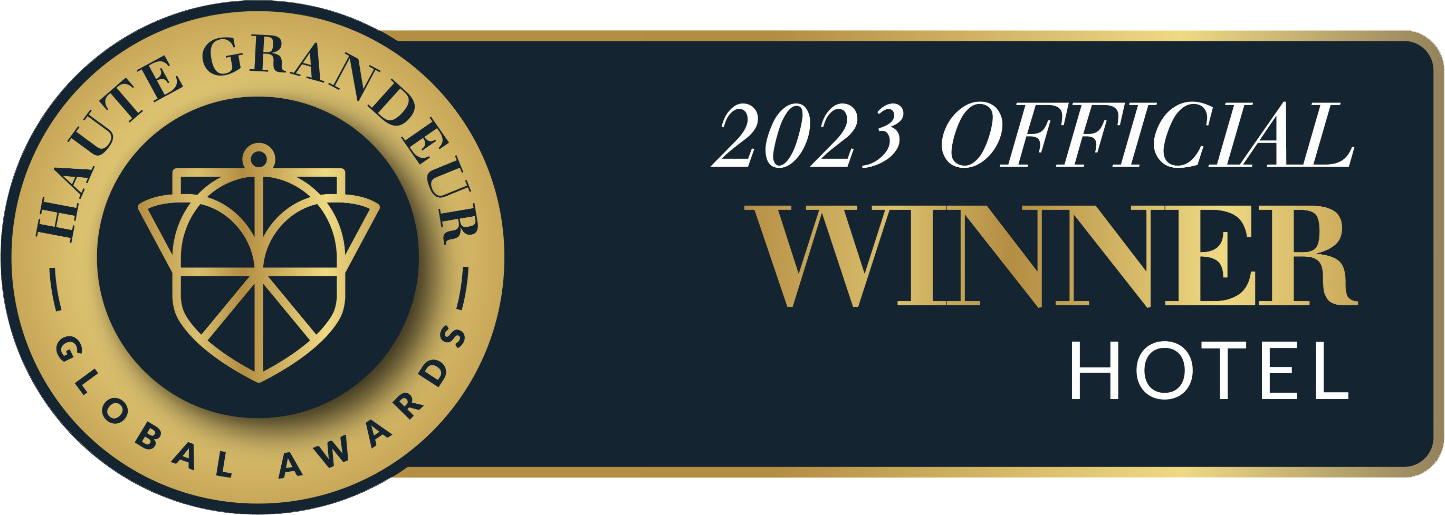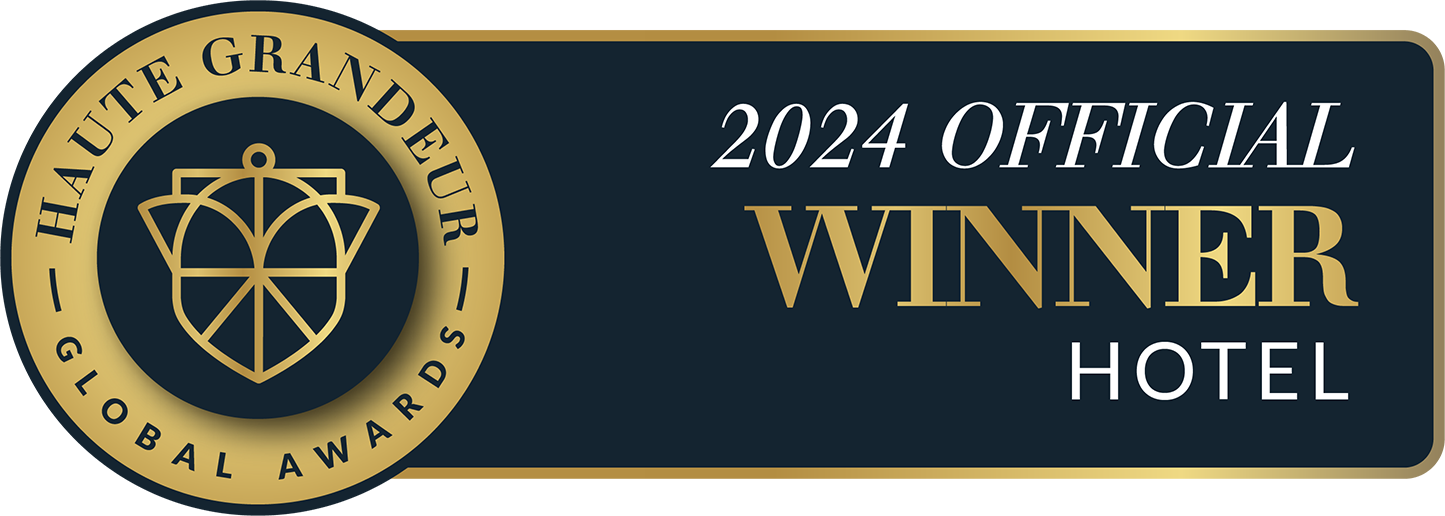Radhe Shyam Saraf
Radhe Shyam Saraf (born 1930 –2022) has been one of the most prominent foreign businessmen and foreign investors in Nepal for the last fifty years. He is an Indian business man who began his career trading with Tibetans across the Himalaya from Kalimpong. In 1963, he shifted to Nepal, where he opened the Hotel Yak and Yeti in Kathmandu in 1977, and with his sons and grandson, gradually built a business empire of six companies owning twelve luxury hotels in India and Nepal.
Having learned fluent Tibetan as a young man, Radhe Shyam became follower and friends with many notable Tibetan lamas including HH the Dalai Lama, 16th and 17th Karmapas, Rev. Urgyen Tulku, Rev. Chatral Rinpoche, Rev. Chokyi Nima Rinpoche and Rev. Namkha Rinpoche. In recognition for his great contribution to tourism in Nepal with Modern Indian School, His Majesty the late King Birendra Bir Bikram Shah Dev conferred Radhe Shyam with the prestigious Gorkha Dakshina Bahu Award. The former King Gyanendra also conferred second Gorkha Dakshina Bahu Prabal award on Radhe Shyam in 2003.
Radhe Shyam attributes his success to the fact that he has not centralized the business. "A system is there. My sons and grandsons will look after the business and are capable. The whole family is well-educated and serious about business. They will take care. Actually, religion supports the business. If we have a good talk with the lama, good blessing, and good advice, it helps the business. I am an opportunity man. If a good opportunity comes, definitely I will do something. Right now, we have a project in Nepal for hydropower."
Early life in a trading family
Radhe Shyam was born in 1930 to a business family. His father was a trader and manager of a rice mill in Guwahati, Assam. When the Second World War started, the Japanese were coming into India, so his father moved the family back to their ancestral town in Ratangarh, Rajasthan in 1940.
The Saraf family has always been a mercantile family of the Marwari ethnic group. Their traditional home 'haveli' is a nice brick and masonry building built in about 1850 by Radhe Shyam's great grandfather in a nice neighborhood of Ratangarh.The haveli is still a particularly important anchor for the family. They visit it often for lifecycle rituals such as the first hair cutting of sons. So, it was natural for the family to move to Ratangarh in this time of difficulty.
Within four years of moving, his father passed away from cancer in 1943 when Radhe Shyam was just 12. His mother used her jewelry and wealth to take care of the family for several years.
In 1947, the father's sister visited and took Radhe Shyam with her to work and learn business accounting as an apprentice in her husband's business in Kalimpong. This is the Marwari way of learning and passing traditions from generation to generation. Under the guidance of his aunt's husband, Radhe Shyam learned accounting in the shop and mercantile business. His formal education was over at Class 8, but he continued with the apprenticeship training.
In 1950, Radhe Shyam married 15-year-old Ratna Devi Saraf, but she stayed with her family and only came to live with him and his family six months later in October. During that time, Radhe Shyam started his own business by renting a shop in the main market of Kalimpong, which was funded by the same aunt and her husband for whom he worked. Ratna Devi came on Dusshera (Nepali: Dashain) day, an auspicious day for Radhe Shyam to formally started his marriage and his business.
Radhe Shyam's son Arun Saraf quotes his elder uncle Shyam Sundar, "your mother Ratna Devi is widely acknowledged in our family as the Lakshmi (goddess of wealth) of the house, the one who brought the luck to the family." Radhe Shyam acknowledges his wife, Ratna, as the real luck changer for him.
Starting business in Kalimpong and Tibet
At this time, Radhe Shyam asked his elder brother, who was then working in Calcutta (Kolkata), to join him in this business. The whole family, including the younger brother, moved to Kalimpong, which was a business centre but is now a touristy tea town. Both brothers ran the shop while Radhe Shyam continued to work for his aunt and uncle for a salary to continue to support the family. In 1952, Radhe Shyam left his uncle's business to run his own shop with his brothers.
Most trade was barter exchanges and the main trading partners were Tibetans, some of whom would cross the Nathula Pass to Sikkim and Kalimpong. Others would not want to cross over to the Indian side to come down lower. Often Tibetan and Nepali traders would visit Yathung to buy for shops in Lhasa.
Accordingly, Radhe Shyam and his brothers had shops in both Kalimpong, India, and in Yathung, in Tibet near the pass into India. Radhe Shyam would travel to Yathung twice a year, but never lived in Tibet, where it would have been difficult as a strict vegetarian. He learned Tibetan language and traditions to be able to fulfill the requirements of their Tibetan customers.
Radhe Shyam bought whatever the Tibetan traders had – wool, valuable items, and musk, which was an important trade item at that time. Radhe Shyam and his brothers sourced the goods from India, China, Japan, or Afghanistan and brought them to Kalimpong to trade wholesale with the Tibetans. They carried anything from daily household items(razor blades, toothbrushes, bicycles, and cloth) to luxury goods (Swiss watches, luxury goods, silks, and saffron).
The trade with Tibet flourished during the 1950s. Radhe Shyam started studying with an English teacher everyday for one hour in Kalimpong to learn English, which enabled him to become a global businessman. By 1957, the business was running so well that Radhe Shyamwas able to buy his first car. He and his wife had three daughters and two sons. They lived with the brothers' families in the joint extended family home in Kalimpong.
In 1966, Radhe Shyam and his brothers built a seven-story house in Calcutta (Kolkata). Eventually, Radhe Shyam bought the shares of his brothers, so this house continues to be his principal residence in Kolkata, even though he now owns the Hyatt Regency Kolkata.
Adjusting to historical changes
In 1949, the communists came to power in China, but Tibetans continued to trade freely. After the Chinese started to exert power in Lhasa in 1958, HH the 14th Dalai Lama left Tibet and crossed over into India in 1959. The trade did not stop at once but by 1961 the Chinese were trying to control it. Trade came to abrupt halt with the Chinese invasion of the Indian side of Nathula Pass in 1962. The Chinese closed the border so the shop in Yathung Tibet was shut down; Radhe Shyam and his Indian manager were forced to leave Tibet and return to Kalimpong.
At this time, Radhe Shyam decided that his Kalimpong business was over but that he still loved Tibetans and Tibetan culture. He went to various places but in 1963 brought his family to Kathmandu, from where he could continue the trading business with the same Tibetan partners over the Nepal border with Tibet. The family house in Kalimpong was taken over by his youngest brother, whose family continues to own it. The three brothers started the trading business from zero, ran it, and all became prosperous.
Attraction to Tibetan culture and Buddhism
Since his early days trading in Tibet, Radhe Shyam has always had an interest in Tibetan culture and affairs. He became friends with several high lamas and Rinpoches when he met them in Kalimpong or Sikkim and in Nepal, "where they are more accessible" than previously in Tibet where their monasteries were usually far from Lhasa. Radhe Shyam speaks Tibetan very well and speaks it with Lamas and Tibetan friends.
He and his whole family are practising Hindus: "We keep our old Rajasthan Hindu tradition. But, really I do not find much difference between Buddhism and Hinduism. The principles are the same. The teaching is the same. But the lamas first practice themselves and then they teach you."
Radhe Shyam became friends with the 16th Karmapa at their first meeting in 1959, "we felt as if we knew each other." The 16th Karmapa settled in Sikkim where he re-established Rumtek monastery. The 16th Karmapa and his entourage stayed with the family at their Calcutta home in 1968-69. Radhe Shyam is also friends with the 17th Karmapa, whom he met in Dharmashala six months after then young lama left Tibet.
When Radhe Shyam came to Kathmandu in 1964-65, he met Urgyen Tulku and visited him in Nagi Gompa dozens of times. Since then, Radhe Shyam and his family have been very close to this family of reincarnate lamas especially Chokyi Nima Rinpoche, the eldest son. Then in 1970, Radhe Shyam met Chatral Rinpoche. "When I met the lamas, we would sit for an hour and just meditate. In between, we might discuss some questions but not talk so much."
New ventures in Nepal and Hong Kong
The trading ventures based in Nepal did not last long because with heavy taxes, many other businesses kept two sets of books to pay less taxes and sell the goods for cheaper prices. Radhe Shyam did not want to keep two sets of books to avoid the tax, so he left trading. During the 1960s, Radhe Shyam and the HHDL Trust started a venture in steel pipe making company, Gaide Iron and Steel Company, based in Bihar in India.
In 1966, Radhe Shyam set up his first industrial enterprise in Nepal, Nepal Knitting and Weaving Mill Pvt Ltd, at Hetauda Industrial estate. He had imported the machinery from Germany and the mill exported most of its product to India where was a big demand for terylene (nylon) cloth. When India stopped the import of cloth from Nepal in 1971 to protect its textile mills, the mill had to go down from working three shifts to just one shift that was enough to feed the requirement for polyester fabrics in Nepal. By 1975, Radhe Shyam had shut down and sold the Hetauda mill.
Meanwhile, in 1968, Radhe Shyam established an office, Sara International, in Hong Kong to trade in China. By 1972, he had obtained a Hong Kong residency card and moved his family to live in Hong Kong while he purchased goods produced in China, to sell to Japanese, Korean, European, and Indian buyers. There was no tax or duty in Hong Kong at the time. In 1996, Radhe Shyam started an office in Singapore due to uncertainties with the pending handover of Hong Kong to China in 1997. At this time, Radhe Shyam moved completely back to Nepal.
In 1981, Radhe Shyam and his elder brother, Shyam Sundar, acquired a London listed company, the Bazaloni Group, which owned three tea plantations in Assam. Although his elder brother managed the plantations, he enjoyed being associated with them because of the old memories of Kalimpong and tea plantations.
The first hotels – the Yak and Yeti in Kathmandu and Hyatt in Delhi
In the 1970s, Radhe Shyam was looking for other projects. His personal interest in travel and in-depth knowledge of the Himalayan region led him to explore the tourism industry. In 1951, Prince Basundhara had started the Royal Hotel in a rented Rana palace, Bahadur Bhawan, with his friend, Boris Lisanevich, a Russian émigré who ran this first luxury hotel. Radhe Shyam became friends with Boris in the mid 1960s at the Royal Hotel. As more mountaineering expeditions came to Nepal in the 1950s, the Yak and Yeti Bar at the Royal Hotel came to be a home in Kathmandu for many western mountaineers. However, in 1969, the prince had had to close the Royal Hotel due to the lease and because the business was not doing well.
Boris then asked Radhe Shyam to help restart the Yak and Yeti Bar. Together they identified the Lal Durbar palace as a location. The palace was the first of ten palaces built by the 11th Rana Prime Minister, Bir Shumsher JBR (1852-1901) in 1890. The then owner in 1969, Narayan Shamsher Rana, agreed to lease it to Radhe Shyam as the silent partner, who paid the rent. Otherwise, Boris had no place to start a business as no one would rent directly to him. Boris ran The Yak and Yeti Restaurant (renamed The Chimney Room after 'Yak and Yeti' became the name for the hotel) and the palace dance hall as the banquet hall (now called Naach Ghar). This turned out not to be a profitable venture for Radhe Shyam.
From 1970-74, the World Bank had a project to support tourism. Although it usually gives loans to governments, World Bank decided to make loans to the private sector for construction and operation of good hotels. The Bank chose the Annapurna Hotel and the Yak and Yeti restaurant as the recipients of loans to construct and develop hotels.
Radhe Shyam founded the hotel company and signed the agreement with the World Bank in 1974 to fund the construction of the hotel. The hotel was the first private sector project to be funded by the World Bank in Nepal. He and two partners (Birdi Raj Pandey (chief priest of the royal family) and Chothenal Jaytia) bought the former Royal Hotel palace from Bhadra Shamsher Rana. It was used for storage while the Hotel Yak and Yeti was being built in 1975. In 1980, this old Royal Hotel palace was nationalized by King Birendra, who returned their investment without any other compensation.
The Hotel Yak and Yeti opened in 1977 as a 120 room, 5-star hotel – the first of its kind in Nepal. The German General Manager first recruited left after a few months. Boris initially ran the restaurant and was a director of the hotel with an honorary share of Rs 10,000. His three children were given jobs, but they all stepped out within six months. In late 1977, Radhe Shyam hired a British General Manager, Richard Plant, who stabilized management of the hotel. For over forty years, Radhe Shyam and his son, Arun, have continued to oversee management of the Hotel Yak and Yeti with hired General Managers.
In 1980, Radhe Shyam as the founder promoter of Asian Hotels Ltd tied up with Hyatt International bringing the chain's first hotel to India when he started construction of the Hyatt Regency Delhi. The 550-room hotel opened to receive guests for the Asian Games in 1982 with a record completion time of two years.
Meanwhile, Radhe Shyam's elder son, Arun, returned from studies in UCLA in 1981 to join the growing family business and start looking after the Hotel Yak and Yeti, completing the acquisition and refurbishment of Lal Durbar as part of the hotel convention centre. The younger son, Umesh, joined the business in 1986 in New Delhi, so that under Radhe Shyam's leadership the family began to build new properties.
Founding Modern Indian School
In 1978-79, Radhe Shyam founded the Modern Indian School in Kathmandu in the rented Surendra Baban palace in Sanepa. The school was the first of its kind in Nepal as the only school with Indian curriculum. Many senior Nepali bureaucrats attended Modern Indian School. Under the patronage and leadership of Radhe Shyam, it has become an excellent educational institution.
As it grew, the Modern Indian School had to be relocated so in 1992, Radhe Shyam and the team built a new school building at Chobhar, south of Kathmandu and Patan cities. Radhe Shyam continues to be the president of the school as a non-profit organization, meant to provide an Indian education. The alumni of Modern Indian School are involved in every aspect of Nepali business, bureaucracy, and government.
More hotels in Nepal and India
With his sons in the family business, Radhe Shyam could expand its endeavours. In 1990, they bid for Taragaon hotel in the public bidding for a public-private partnership. This was the first time such a partnership happened in the history of Nepal after the establishment of multiparty democracy. The old Taragaon Hotel, owned by a government organization called Taragaon Tourism Development Board, was falling apart. Arun oversaw the bid for the development of the Taragaon Hotel, which led to setting up of a new company and development of the Hyatt Regency Kathmandu at Bouddha in 1997. The 40-acre property was the largest private sector development for tourism in Nepal.
In 1992, the family expanded the Hotel Yak and Yeti by adding a new wing with an additional 150 rooms, bringing the room total to 270. They also gradually acquired all the sections of the old palace, Lal Durbar, from the many heirs owning various sections of the once grand palace. In Lal Durbar, they developed banquet halls and a convention centre.
In 1996, Saraf Hotel Enterprises launched Grand Hyatt New Delhi (now The Grand, New Delhi), a 400-room project that opened for guests in 2000. With its partners in Asian Hotels Ltd., it also completed Hyatt Regency Kolkata and Hyatt Regency Mumbai in 2002. Two years later, they launched the Grand Hyatt Mumbai, India's first mixed-use development that began operations in 2004.
In 2010, Asian Hotels Ltd., split into East and West companies and Saraf Hotel Enterprises took over Asian Hotels (East) Ltd., which owned Hyatt Regency Kolkata.
In 2011, the group opened Hyatt Regency Chennai, a 327-room deluxe hotel in the heart of the city. In 2012, Hyatt Place Hampi opened to become the first Hyatt Place outside North America. Hyatt Raipur also opened in 2014, which is a mid market hotel.
As of 2019, Saraf Hotel Enterprises has several new projects including Hyatt Regency Ahmedabad with 210 rooms and Andaz New Delhi with 401 rooms and 146 serviced apartments. Hyatt Regency Lucknow with 208 rooms and Hyatt Regency Guwahati (under construction) with 200 rooms. The group is also working on a large hotel and convention centre development in Bodhgaya, Bihar. Saraf Hotel Enterprises is now a conglomerate of eight companies owning fifteen hotels in Nepal and India.
Growing tourism ventures
In 1980, the family purchased Nepal Travel Agency (started in 1959 by Mr. Maskey and Mr. Rana) and in 1984 obtained an exclusive permission under the brand 'Tibet Overland' to bring third country origin tourists overland through Nepal into Tibet for five years. During the 1980s, they would send 30-50 foreign tourists daily into Tibet. The three-day trip involved driving overland from Kathmandu to Khasa, crossing over the mountain passes into Nilam, going to the north face of Mt. Everest in Tingri, and returning to Kathmandu. They also offered a 21-day trip to Lhasa with a seven-day drive from Kathmandu, seven days there, and coming back to Kathmandu in seven days.
The Nepal Travel Agency refurbished their Khasa hotel to make it operational. As well, they upgraded the Gyantse hotel and Lhasa hotel, so the three hotels were ready for the tourists
Radhe Shyam managed to make this venture successful because of his strong relationships with both sides and the fact that he did not take sides. He said "I am a trader. Both of you are my friends." Before he went there, he sent a message and got a blessing from HHDL to make sure that he would not run afoul with the Tibetans in exile.
"The one thing that sets this company of self-made entrepreneurs apart is the willingness to take risks – but calculated risks as that. While they have forayed into the development of resort and convention centre in Bodh Gaya, the grandfather-sons-grandson trio make it a point to work in sync and gather enough market information before taking on any project. And despite the age gap, there is no generation gap that exists in this family."
Power List 2017, www.hotelierindia.com/power-list-2017-arun-saraf-md-juniper-hotel
http://www.marwar.com/people/profile/the-man-who-brought-hyatt-to-india.html
https://www.sarafhotels.com/about.html#manage
https://www.bloomberg.com/research/stocks/people/person.asp?personId=30715372&privcapId=111620423
Website by: Curves n' Colors






